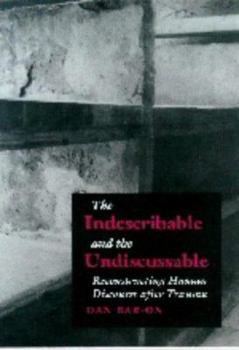The Indescribable and the Undiscussable: Reconstructing Human Discourse after Trauma
Select Format
Select Condition 
Book Overview
People--laymen and practitioners alike--face serious difficulties in making sense of each other's feelings, behavior, and discourse in everyday life and after traumatic experiences. Acknowledging and working through these difficulties is the subject of this extremely interesting and highly readable book. After a critical look at the psychological and philosophical literature, Dan Bar-On identifies two groups of impediments. First, the indescribable, as it appears when individuals try to understand and integrate their first heart attack into their previous life-experience, when a group of pathfinders talk about their different maps of the mind and nature, or when a team of welfare practitioners tries to develop a common approach to their regional population. Second, the undiscussable, as it appears in the transmission, from generation to generation, of the traumatic experiences of the families of both Holocaust survivors and Nazi perpetrators, the book showing how their descendants can work through the burden of the past by confronting themselves and each other through a prolonged group encounter. This book provides a unique way of looking at life experiences, individual as well as inter-personal. It proposes a new psychological theoretical framework in a way to which both laymen and professionals can relate while confronting similar issues in their everyday experiences and discourse. The book is of especial relevance to present-day Central and East European societies, relating as it does to the problems of psychological adaptation arising from the transition from totalitarian to democratic regimes.
Format:Paperback
Language:English
ISBN:9639116335
ISBN13:9789639116337
Release Date:April 1998
Publisher:Central European University Press
Length:326 Pages
Weight:1.10 lbs.
Dimensions:1.1" x 6.1" x 9.0"
Customer Reviews
0 rating





